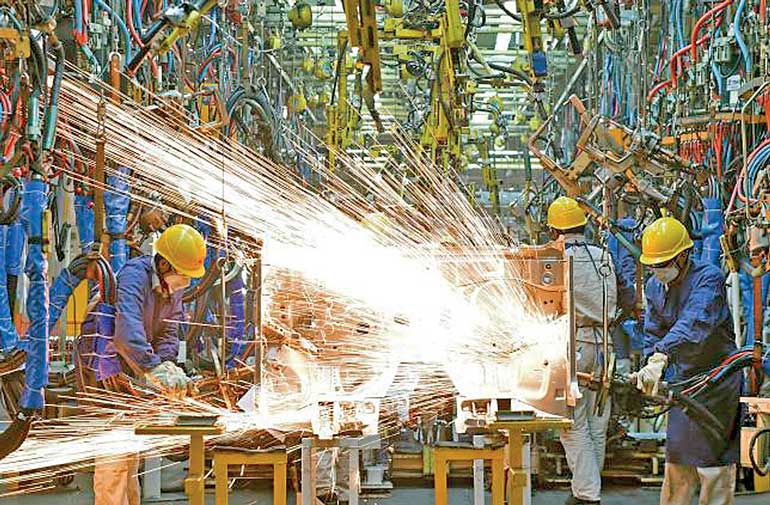Sunday Feb 22, 2026
Sunday Feb 22, 2026
Monday, 7 December 2015 00:00 - - {{hitsCtrl.values.hits}}

Reuters: Global manufacturing growth remained tepid in November as new orders came in at a slower pace, surveys showed last week. Europe saw steady growth in factory activity but reports from the Americas and Asia cast doubt on the strength of global economic growth. J PMo r g a n ’ s G l o b a l Manufacturing Purchasing Managers’ Index (PMI), produced with Markit, slipped to 51.2 in November, just below October’s five-month high of 51.3. “The rate of expansion signalled by the headline PMI remained relatively lacklustre nonetheless, meaning that November continued the subdued run of data for the global manufacturing sector through 2015 so far,” JPMorgan said. The global index has now been above the 50 mark that separates growth from contraction for three years. The global PMI combines survey data from countries including the United States, Japan, Germany, France, Britain, China and Russia. Euro zone manufacturing growth picked up to a 19-month high in November, but the pace was still relatively modest. Markit’s manufacturing PMI for the euro zone rose to 52.8 in November from 52.3 in the prior month. But British manufacturing growth slowed last month with the Markit/CIPS manufacturing PMI at 52.7 from a revised 55.2 in October. Britain had the fastest-growing major economy last year, but it relies heavily on domestic demand. The U.S. Markit manufacturing PMI slipped to 52.8 in November from 54.1 the previous month, with the new orders index falling to falling to the lowest since October 2013. An alternative report from the U.S. Institute of Supply Management (ISM) showed manufacturing activity contracting in November, with the index falling to its worst level since June 2009. ISM said its index of U.S. factory activity fell to 48.6, the first time the index has been below 50 since November 2012, after reading 50.1 in October. The new orders gauge fell to 48.9, the lowest since August 2012. Canada’s manufacturing sector contracted for the fourth month in a row in November, but at a slower pace, as the industry continued to be hurt by weak commodity prices. The RBC/ Markit PMI edged up 48.6 last month from 48.0 in October. Despite the headwind from the drop in commodity prices, U.S. economic growth should benefit Canadian exports and help improve business conditions in the manufacturing sector in the coming months, said Craig Wright, chief economist at RBC. Canada was in a modest recession in the first half of the year as the drop in oil prices weighed on business investment. The contraction of Brazil’s manufacturing activity accelerated in November as factories cut jobs at the quickest pace in more than six years. The Brazil HSBC/Markit PMI index which fell to 43.8 in November from 44.1 in October. The Brazil employment index dropped to 42.2 in November from 45.3. Brazil’s economy is struggling through its worst recession in 25 years, leaving the nation’s crippled manufacturing sector reeling. More than one million people lost their jobs over the past year, and economists see no prospects of recovery until at least late 2016. Mexico’s manufacturing sector continues to expand though with the HSBC/Markit PMI 53.0, unchanged from October. Despondent Asia The manufacturing surveys showed few signs of vigour across Asia, apart from Japan, with sluggish demand at home and abroad forcing manufacturers from China to Indonesia to throttle back production, cut selling prices and shed more jobs. “Asia’s economy looks decidedly wobbly going into year-end. Exports continue to struggle amid sluggish demand in the West and other emerging markets,” said HSBC economist Frederic Neumann. China’s official PMI fell for a fourth month in a row in November, hitting its lowest since August 2012, as new export orders dropped for the 14th month. There was much better news out of Japan, where manufacturing firms, possibly aided by a weak yen, may be producing enough to lift the world’s third-largest economy out of recession. Manufacturing production expanded by its fastest pace in 20 months in November as new orders picked up, according to the Markit/Nikkei Japan manufacturing PMI.